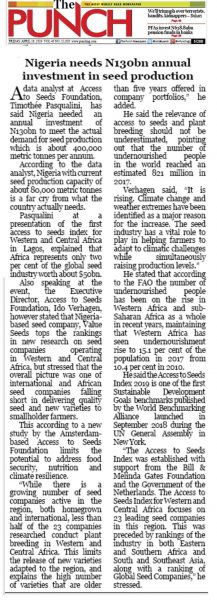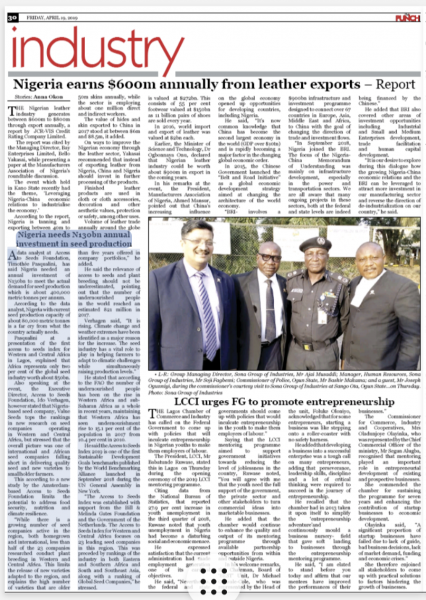A data analyst at Access to Seeds Foundation, Timothée Pasqualini, has said Nigeria needed an annual investment of N130bn to meet the actual demand for seed production which is about 400,000 metric tonnes per annum.
According to the data analyst, Nigeria with current seed production capacity of about 80,000 metric tonnes is a far cry from what the country actually needs.
Pasqualini at a presentation of the first access to seeds index for Western and Central Africa in Lagos, explained that Africa represents only two per cent of the global seed industry worth about $50bn.
Also speaking at the event, the Executive Director, Access to Seeds Foundation, Ido Verhagen, however stated that Nigeria-based seed company, Value Seeds tops the rankings in new research on seed companies operating in Western and Central Africa, but stressed that the overall picture was one of international and African seed companies falling short in delivering quality seed and new varieties to smallholder farmers.
This according to a new study by the Amsterdam-based Access to Seeds Foundation limits the potential to address food security, nutrition and climate resilience.
“While there is a growing number of seed companies active in the region, both homegrown and international, less than half of the 23 companies researched conduct plant breeding in Western and Central Africa. This limits the release of new varieties adapted to the region, and explains the high number of varieties that are older than five years offered in company portfolios,” he added.
He said the relevance of access to seeds and plant breeding should not be underestimated, pointing out that the number of undernourished people in the world reached an estimated 821 million in 2017.
Verhagen said, “It is rising. Climate change and weather extremes have been identified as a major reason for the increase. The seed industry has a vital role to play in helping farmers to adapt to climatic challenges while simultaneously raising production levels.”
He stated that according to the FAO the number of undernourished people has been on the rise in Western Africa and sub-Saharan Africa as a whole in recent years, maintaining that Western Africa has seen undernourishment rise to 15.1 per cent of the population in 2017 from 10.4 per cent in 2010.
He said the Access to Seeds Index 2019 is one of the first Sustainable Development Goals benchmarks published by the World Benchmarking Alliance launched in September 2018 during the UN General Assembly in New York.
“The Access to Seeds Index was established with support from the Bill & Melinda Gates Foundation and the Government of the Netherlands. The Access to Seeds Index for Western and Central Africa focuses on 23 leading seed companies in this region. This was preceded by rankings of the industry in both Eastern and Southern Africa and South and Southeast Asia, along with a ranking of Global Seed Companies,” he stressed.







